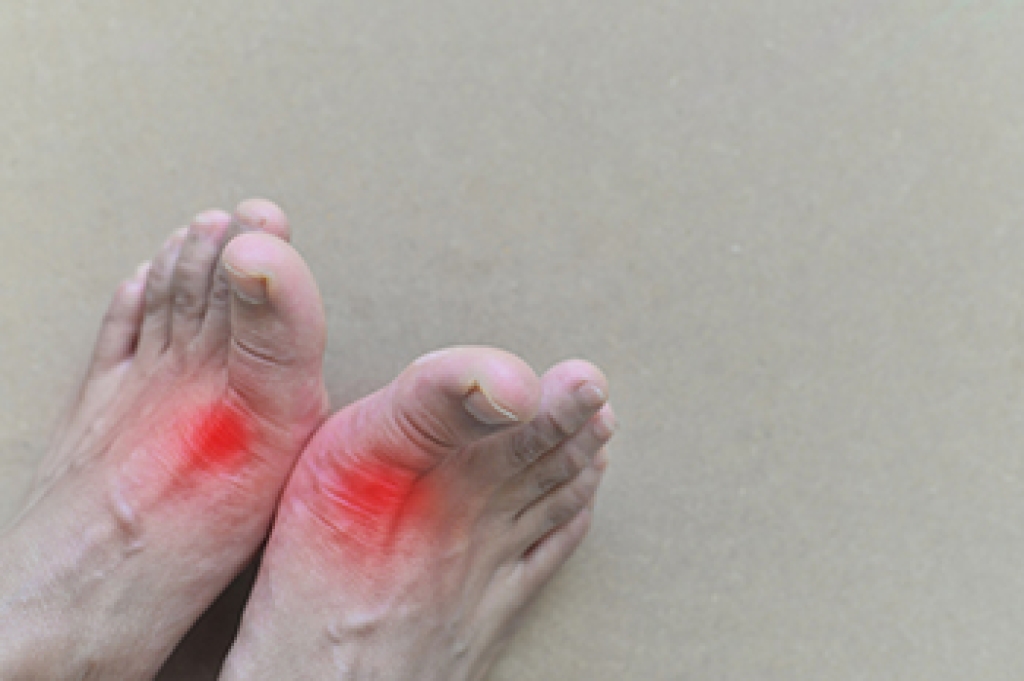
Gout is a type of arthritis caused by high levels of uric acid in the blood, leading to the formation of sharp crystals in the joints. The big toe is often affected, and the pain may become debilitating, some patients have difficulty in walking and completing daily activities. This condition can be triggered by factors such as genetics, obesity, and certain medical conditions. Diet plays a significant role in managing gout. Foods high in purines, such as red meat, organ meats, and certain seafood like sardines and shellfish, should be avoided as they can increase uric acid levels. Additionally, sugary beverages and alcohol, particularly beer, can exacerbate gout symptoms. On the other hand, a diet rich in low-purine foods can help manage gout effectively. These include fruits, vegetables, whole grains, and low-fat dairy products. Drinking plenty of water and maintaining a healthy weight can also help reduce uric acid levels. Individuals who have gout often experience extreme pain and discomfort, especially in their big toe. If this applies to you, it is strongly suggested that you are under the care of a podiatrist who can treat this condition, and lead you to making correct food choices.
Gout is a painful condition that can be treated. If you are seeking treatment, contact Zina Cappiello, DPM from Dr. Zina B. Cappiello DPM, LLC. Our podiatrist will treat your foot and ankle needs.
What Is Gout?
Gout is a form of arthritis that is characterized by sudden, severe attacks of pain, redness, and tenderness in the joints. The condition usually affects the joint at the base of the big toe. A gout attack can occur at any random time, such as the middle of the night while you are asleep.
Symptoms
- Intense Joint Pain - Usually around the large joint of your big toe, and it most severe within the first four to twelve hours
- Lingering Discomfort - Joint discomfort may last from a few days to a few weeks
- Inflammation and Redness -Affected joints may become swollen, tender, warm and red
- Limited Range of Motion - May experience a decrease in joint mobility
Risk Factors
- Genetics - If family members have gout, you’re more likely to have it
- Medications - Diuretic medications can raise uric acid levels
- Gender/Age - Gout is more common in men until the age of 60. It is believed that estrogen protects women until that point
- Diet - Eating red meat and shellfish increases your risk
- Alcohol - Having more than two alcoholic drinks per day increases your risk
- Obesity - Obese people are at a higher risk for gout
Prior to visiting your podiatrist to receive treatment for gout, there are a few things you should do beforehand. If you have gout you should write down your symptoms--including when they started and how often you experience them, important medical information you may have, and any questions you may have. Writing down these three things will help your podiatrist in assessing your specific situation so that he or she may provide the best route of treatment for you.
If you have any questions, please feel free to contact our office located in Clifton, NJ . We offer the newest diagnostic and treatment technologies for all your foot care needs.
